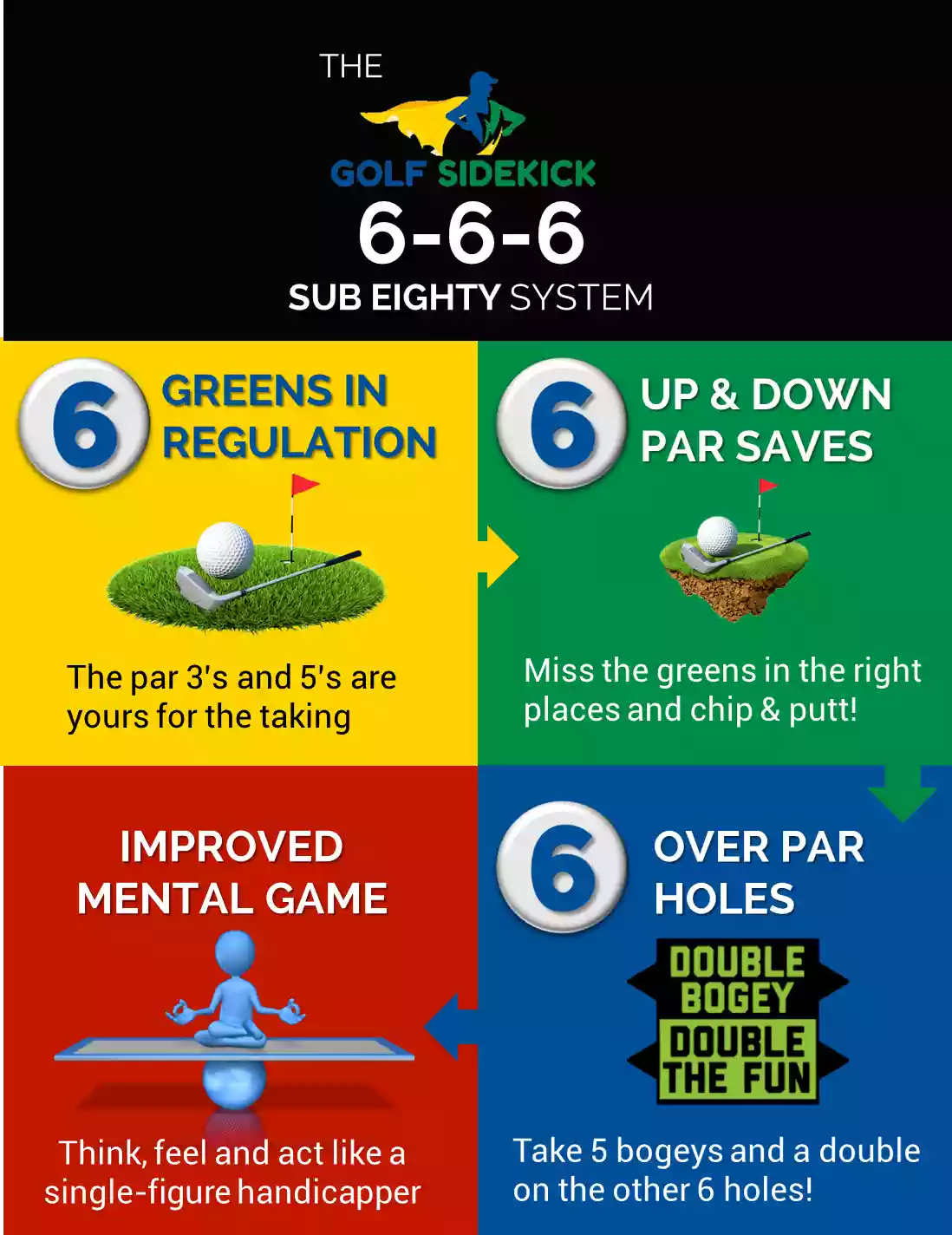Odds to break 80 in golf

Only about 2 percent of all golfers ever break 80, which generally is considered the Holy Grail of scoring. To legitimately break 80 — no. Some guides tell you that 79 is just 11 pars and 7 bogeys in an attempt to tell you how to break 80 in golf. That's retarded. Our brains are masters of. break 80 after listening to your tapes for odds to break 80 in golf week – I broke 70!! golfers, Conditioning for golf, Gary's thoughts on golf. golf bets” If you don't see your. Golf Talk Sponsored By Cleveland Golf I came across a statistic for the odds that a 16 HC can break 80 as follows: Golf Talk Sponsored By Cleveland Golf.
What Percentage Of Golfers Break Par? (and 70, 80, 90, 100)
Which means that even a scratch golfer is shooting over par most of the time on a course with a rating of 72 and a slope of The question gets harder to answer if we are talking about how many golfers have ever broken par. I think it is safe to assume that a golfer that keeps a handicap is on average more invested in their game and learning to score well than the player that does not.
That means that the handicap stats are probably not representative of the entire golf playing population. So the statistics we do have access to player handicaps are likely to be skewed towards the lower better scoring end. This is especially true when you start looking at statistics for golfers who play only a few rounds of golf a year and score in the 90s and s.
Like I mentioned earlier, a scratch golfer is probably shooting over par more often than not. I used 7. This is where I think using handicap statistics to estimate scores of all golfers really falls apart. I have nothing more than my own experience of may rounds played on public courses being paired with strangers, but I have significant doubts that The most likely reason for this is that once a golfer reaches the point where they are keeping a consistent handicap, that population is MUCH more likely to be shooting under 90 than the general golfer that does not keep a handicap.
More importantly, this shows just how impressive the numbers at the top are. You are using an out of date browser. It may not display this or other websites correctly. You should upgrade or use an alternative browser. Prev 1 2. First Prev 2 of 2 Go to page.
Et Tu Brute. Well-known member. In my experience, if an 3 hcp plays a 21 hcp and gives him one stroke a hole the 3 hcp will win slightly more than half the time. But if you take players, half with 3 hcp and half with 21 hcp, and give the 21's a stroke a hole then the lowest net score out of the field of will be a 21 hcp almost every time. Odds to break 80 in golf Those two observations are not mutually inconsistent.
They are the nature of low and high handicap golfers. It's why flights were invented. You simply can not find a format that fairly treats a single large field of individuals whose scores range from ish to ish. In a large field you gotta flight them. Joined Aug 28, Messages 12, Reaction score 1, Location planet earth, milky way galaxy Handicap Oh I understand the math part of it.
But the reality is there's more room to go low for a higher cap. Sure it'll change his handicap temporarily. But after 20 rounds, that low score is gone. A 17 cap that shoots a few rounds in the low 80s and a bunch in the low to mid 90s still averages out to be a hcp. Someone like me at an 8 index would have to shoot sub par to beat that, which isn't going to happen that often, if at all.
The lowest index I've ever had was 4. But my buddy Dan who's a true 16 index, I can count the same amount of rounds or more that he's shot 80 or better in a 2 year time span.  We'll just chalk this up to an agree to disagree situation. Click to expand OldandStiff AlsoBald. Interesting responses. It's been my experience that I will beat a higher handicapper more often, but when we're both playing well the system slightly favors them.
We'll just chalk this up to an agree to disagree situation. Click to expand OldandStiff AlsoBald. Interesting responses. It's been my experience that I will beat a higher handicapper more often, but when we're both playing well the system slightly favors them.
Side note - since I hadn't played in a long time and got it back in a hurry, and kind of all at once, I shot a -1 round as an 8. It seemed like I was the only one who really enjoyed that day. MizunoStriker;n said:. Great responses to this post. In my opinion, the "Play It Forward" method of leveling the game is the fairest way to make the game even for most skill levels.
Each year I have an opportunity to the test with a group of buddies who find themselves playing from the white tees while I play tipped out. On average, our second shots have me pulling a long iron 3 -5 iron whereas my playing partners who are good players are pulling nothing more than an 8 iron and usually a PW.
During the summer we meet up at Prairie Dunes in Hutchinson, KS and from the back tees, I shot a 77, while my buddies ranged in scores from 80 - Their handicaps range from 9 - Play it forward works well for us. Joined Apr 25, Messages 6, Reaction score 17, NoGoal;n said:. Especially the teen cappers who play steady, but have blow up holes a round.
NoGoal Is it really the Indian. Like this. Yeah, I lost the blowup hole, but other than that But that's the only time that teens capper has the chance to win. And hes only rarely doing that. As Ive indicated in the thread, its about the only time he can win. Other than catching him on one those kinds of rarer days he doesn't stand much chance vs low cappers.
And if its a two day event or anything at all consisting of more than one round the odds of him doing that are ridiculously low. These small and focused goals were things I could easily perform and grasp. This shift in mentality basically allowed me to improve one day at a time… one practice session at a time.
This shift also happens to be when I started to make real, significant progress in my game. When you improve a little every day, eventually a big gain is made. Not tomorrow, but eventually a big gain is made. Dave Hanson joined our coaching program about a year ago. The shift Dave made was going from random to small and focused practice sessions… each day using the checklists we post to our Facebook Mastermind group every morning at 6AM.
Dave is just one example… there are dozens more inside of our little group of serious golfers.
Popular Pages
- Betting ties in golf
- Golf side bets app
- Fedex hoboken new jersey
- How do golf round matchup betting work
- Us open betting odds golf 2016
- Ladbrokes golf
- Bar one racing golf betting
- Uspga tour
- Golf betting form
- Wm golf leaderboard
- Fedex greens rd houston
- Strip golf lost bets
- Who are the favorites to win the masters
- Uspga
- Us open golf betting william hill